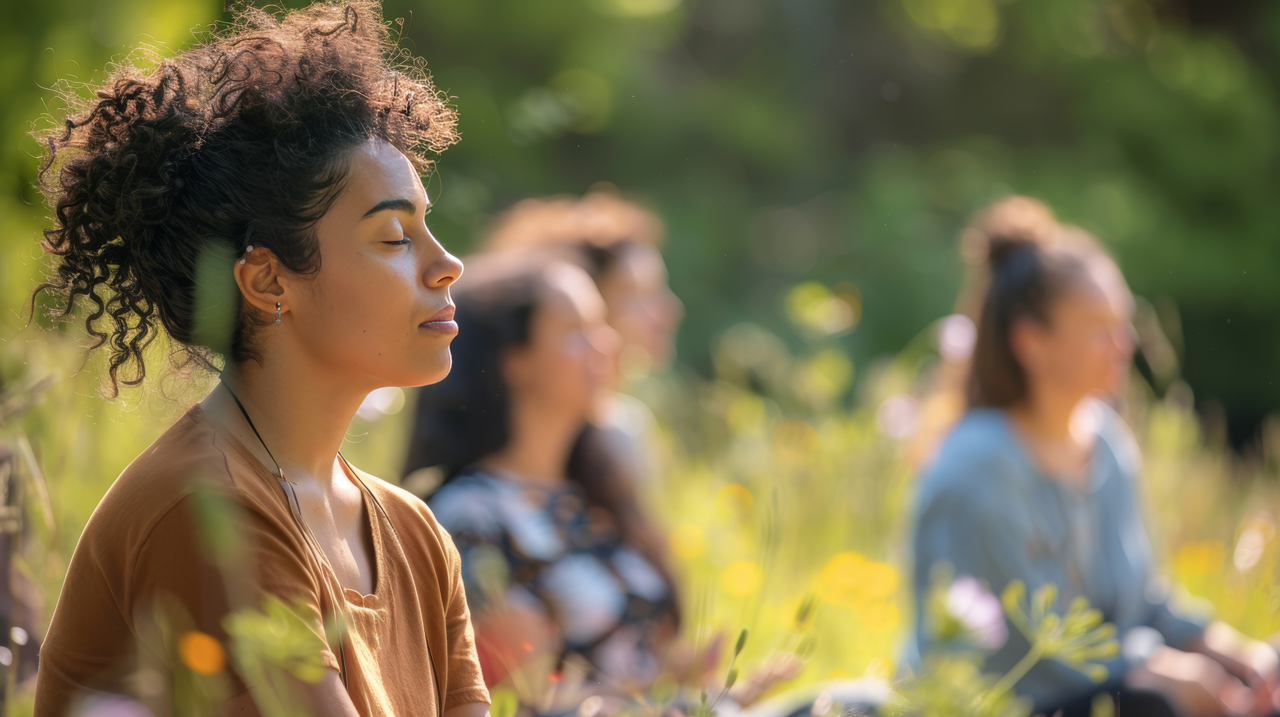
Why Choose a Personal Growth Retreat?
Modern life moves fast, and sometimes we need a break to reconnect with ourselves. Personal growth retreats are no longer just a luxury—they’re becoming essential for emotional healing and meaningful transformation. These retreats give you the space to pause, reflect, and nurture your mind, body, and spirit.
Originally, retreats have roots in ancient spiritual and mindfulness traditions from places like India and Tibet. Today, they have evolved into ideal mindfulness exercises for well-being, blending ancient wisdom with modern practices. Whether it’s mindfulness, yoga, life coaching, or silent reflection, retreats offer a supportive environment to reconnect and grow.
Why You Might Be Seeking a Retreat
People attend retreats for many reasons:
- Feeling stuck or burnt out: A retreat offers a reset, helping you break free from daily stress and exhaustion.
- Seeking clarity or a new direction: When life feels confusing or you’re at a crossroads, retreats provide guidance to uncover your path.
- Healing emotional wounds or limiting beliefs: Deep healing can happen when you step away from usual distractions and confront inner blocks.
- Wanting to deepen spiritual or mindfulness practice: Retreats offer immersive experiences to enhance meditation, yoga, or other spiritual disciplines.
- Desiring a break from digital noise and external pressures: Disconnecting from technology and expectations helps you tune into your true self.
- Looking for creative inspiration or connection with nature: Many retreats combine art, nature, and therapy to spark creativity and grounding.
Understanding your motivation helps you select a retreat that truly supports your personal growth journey.
Types of Personal Growth Retreats
Knowing what style suits you best narrows down your search:
- Mindfulness and Meditation Retreats: Focus on calming the mind through breathwork, meditation, and silence. Suitable for all levels.
- Life Coaching and Transformational Retreats: Led by qualified coaches, these retreats help clarify your purpose and develop practical tools for change.
- Yoga and Wellness Retreats: Combine yoga sessions with healthy eating and spiritual healing for physical and emotional balance.
- Spiritual or Silent Retreats: Designed for deep inner peace, based on religious or secular traditions.
- Creative or Nature-Based Retreats: Blend art, nature exploration, and therapy for grounding and inspiration.
Key Factors to Consider When Choosing Your Retreat
Selecting the right retreat requires thoughtful consideration beyond the surface.
Facilitator Credentials and Style
A retreat can be life-changing but only if it’s led by someone with the right experience and qualifications. Research the facilitator’s background, certifications, and approach. Do they align with your values? Can they tailor the programme to your personal needs and aspirations? The leader’s ability to create a safe and nurturing environment is essential for your transformation.
Programme Goals and Daily Structure
Look closely at what the retreat offers. Does the schedule include workshops, physical activities, meditation, or spiritual practices that fit your goals? Most importantly, does the programme allow you time to reflect and take space away from the activities? Personal growth requires balance between learning and rest.
Group Size and Atmosphere
Consider whether you prefer an intimate setting of 8 to 10 people for closer connection and personalised attention, or a larger group that offers communal energy and networking opportunities.
Location and Setting
The environment influences your healing journey. Whether it’s mountains, forests, beaches, or spiritual sites, find a setting that calms and inspires you. Also, think about travel logistics, safety, and accessibility.
Length and Intensity
Retreats vary from quick weekends to intensive week-long programmes. Choose based on your schedule and emotional readiness. For example, silent retreats can be profound but challenging for beginners.
Cost and Overall Value
Assess what’s included—accommodation, meals, sessions—and whether the price reflects the experience quality. Reviews and testimonials can help gauge value beyond cost.
Questions to Ask Before Booking
- What are the main goals of the retreat?
- Who leads it, and what are their qualifications?
- What does a typical day look like?
- Does the programme include accommodation, food, and materials?
- Have past attendees shared their feedback?
- Is there support after the retreat ends?
Research is key to finding the right fit.
Making the Most of Your Retreat
Prepare yourself mentally and emotionally before attending:
- Set clear intentions about what you want to release or achieve.
- Travel light emotionally; stay open and flexible.
- Participate fully and be honest with yourself.
- Keep a journal to capture insights and breakthroughs.
- After the retreat, integrate your learnings gradually—don’t rush back into routine.
Final Words
A personal growth retreat can be life-changing, offering profound healing and clarity. But it’s important to choose carefully. The right facilitator, programme, environment, and group size all influence your experience. Take time to find a retreat that aligns with your unique needs and aspirations. Your journey to transformation begins with a single, thoughtful step.



